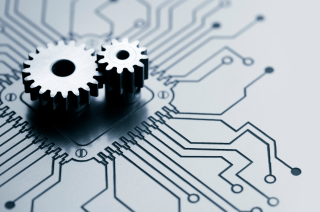Six application-oriented projects will start via NWO’s Open Technology Programme
Six research projects can start with funding through the Open Technology Programme from the NWO Domain Applied and Engineering Sciences. NWO is contributing over 4.3 million euros to these application-oriented technical-scientific projects. Industry and other organisations add almost 400 thousand euros to this.
The awarded projects within the Open Technology Programme will conduct research including:
- A new weapon in the fight against nitrogen: developing a new, low-cost and portable sensor to accurately measure NO2 both high in the air and on the ground (project: GELSONDE)
- Improving the quality of life of patients with severe kidney failure: a new device to optimise current dialysis. Blood purification is improved by properly excreting protein-bound toxins (project: BioArtificial Kidney device...)
- Countering the drawbacks of modern (outdoor) lighting: new components for light remedy glare and light pollution (project: Advanced Freeform Optics....)
Below are the six projects awarded, in order of project number. Click on the plus sign for the project summary.
The Open Technology Programme provides funding for application-oriented technical-scientific research that is free and unrestricted and is not hindered by disciplinary boundaries. The programme offers companies and other organisations an accessible way to participate in scientific research that is intended to lead to societal and/or scientific impact.
-
Advanced Freeform Optics for Reducing Glare and Light Pollution - dr. ir. M.J.H. Anthonissen, Eindhoven University of Technology (20772)
Co-applicant: Eindhoven University of Technology
Modern LED-based (outdoor) lighting has two major issues: glare (harsh uncomfortably bright light) and light pollution (unwanted, inappropriate, or excessive artificial lighting). To reduce glare, the usage of diffusers and lens arrays is state of the art. This results in uncontrolled light distributions that increase light pollution. In this project we try to find the design methodology for new optical components that do not have this drawback and still allow a good control of the light distribution.
-
BioArtificial Kidney device consisting of living membranes for improved kidney replacement therapy - dr. K.G.F. Gerritsen, UMC Utrecht (20775)
Co-applicants: Maastricht University, University of Twente and Utrecht University
Patients with end stage kidney failure, who are waiting or not eligible for kidney transplantation, are fully dependent on dialysis to survive. Their quality of life remains low, as dialysis is limited to a fine-mesh sieve that removes water-soluble toxins only. A large group of protein bound toxins normally excreted by tubule cells in healthy kidneys, is poorly removed and accumulates in the body, contributing to low well-being, cardiovascular disease and neurological manifestations. BAKtotheFuture strives to optimize and validate a new, tubule cell containing device as an add-on to current dialysis, to improve blood purification and therewith quality of life.
-
EnzIm2Flow - Oleate hydratase: engineering targeted enzyme immobilization for optimal conversion and product recovery using two-phase flow chemistry - dr. ir. P.L. Hagedoorn, Delft University of Technology (20781)
Co-applicant: Delft University of Technology
A sustainable chemical industry that relies less on fossil resources requires new ways to convert renewable resources like vegetable oils into useful compounds. Oleate hydratases are enzymes that can do this job very efficiently by adding water to fatty acids to produce hydroxyl fatty acids, which are important in the polymer and cosmetic industry. Until now using this enzyme commercially has been difficult due to the physical properties of the hydroxyl fatty acids and the enzyme's low stability. We will use the enzyme in a controlled and optimized continuous flow process, where it's immobilized to increase its stability and efficiency.
-
GELSONDE: a Gel Sensor for NO2 Detection - dr. P.H.J. Kouwer, Radboud University (20788)
Co-applicant: Radboud University
The Netherlands suffers from high nitrogen emission and one of the major industrial pollutants is NO2. Unfortunately, it proves difficult to locally measure NO2 levels on the ground, but even more so in the earth atmosphere. In GELSONDE, we propose a novel, low-cost and portable NO2 sensor that we will build with a team of materials chemists and sensor specialists. The new sensor is able to accurately measure NO2 levels anywhere on the ground, as well as on high altitudes.
-
Bacin2DLiver: A technological platform of Bacterial fermentation in vitro-assays with 2D gut and Liver organoids and Kupffer cells in co-culture to study equine health and disease - prof. dr. ir. W.H. Hendriks, Wageningen University & Research (20806)
Co-applicants: Wageningen University & Research and Utrecht University
Disruptions in horse gut microbiota (i.e., dysbacteriosis) can be associated with clinical outcomes such as life-threatening laminitis and colic. Studying these conditions is difficult, as access to the gut and liver is limited and requires invasive procedures. Therefore, in vitro technologies to investigate how dysbacteriosis can contribute to metabolic disorders are vital. This project aims (1) to further develop in vitro technologies to simulate gut fermentation. (2) To assess the absorption and metabolism of these metabolites using mini gut and livers (i.e., organoids), and (3) combine these technologies to form a platform to study the gut-liver axis in horses.
-
Particle and Fluid Dynamics in Magnetic Density Separation for Recycling of Plastic Waste - dr. ir. J.C.H. Zeegers, Eindhoven University of Technology (20833)
Co-applicant: Eindhoven University of Technology
Magnetic Density Separation (MDS) is used for the recycling of plastic waste. In MDS a magnetic fluid is used in combination with a magnetic field to levitate plastic particles at a neutrally buoyant height in the fluid. In this way different types of plastic particles can be sorted on mass density and separated simultaneously for recycling purposes. MDS has significant perspectives for plastic recycling on worldwide level. This study focuses on methods to bring the separation efficiency of MDS to the required level for high quality recycling by studying particle and fluid dynamics by means of experiments and numerical simulations.
Source: NWO

